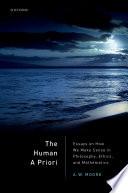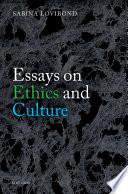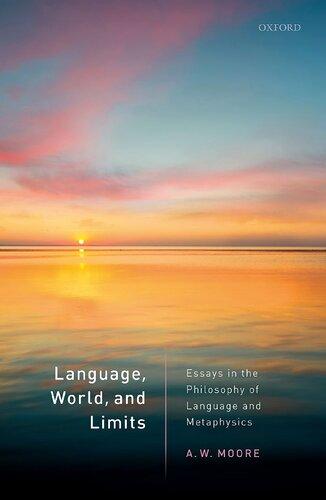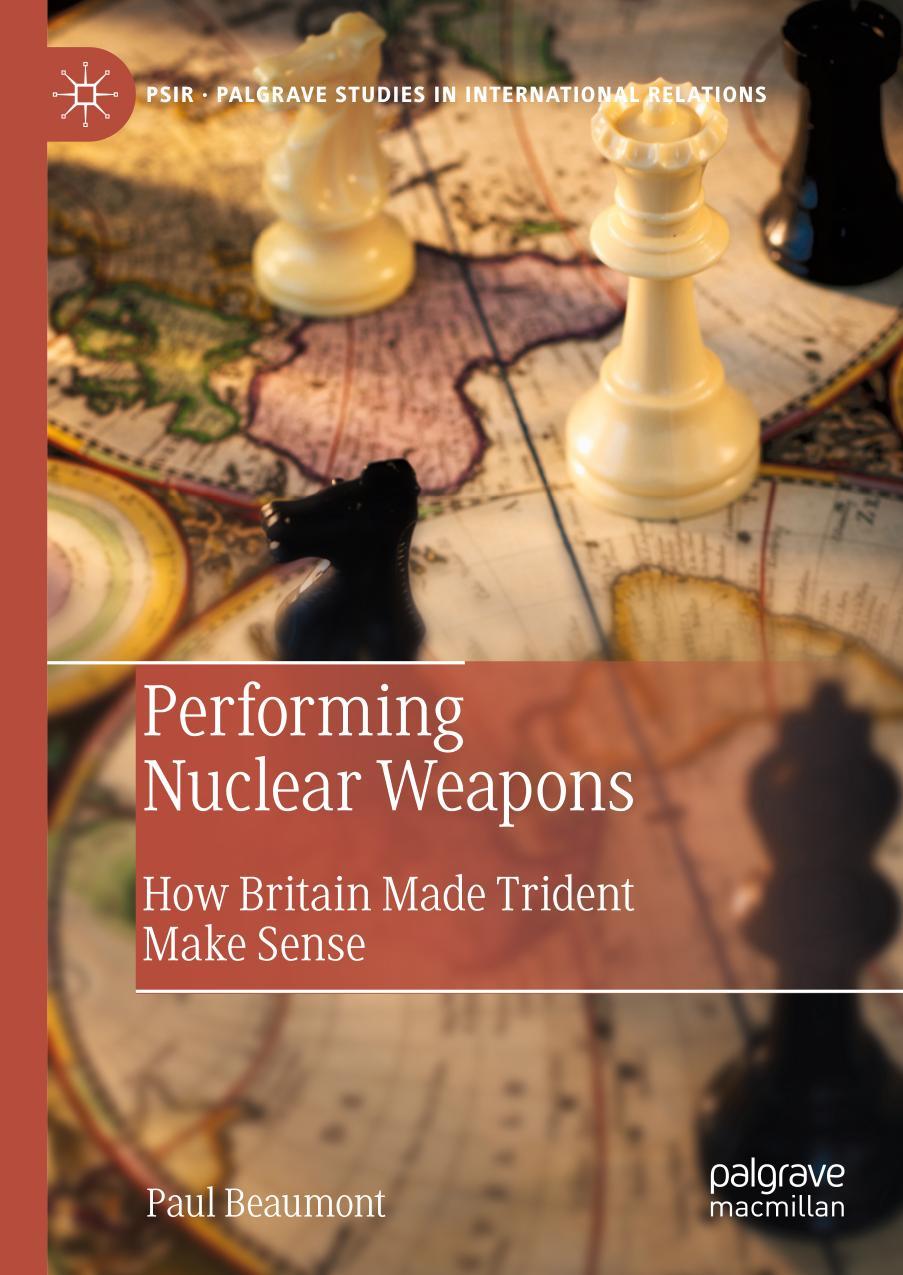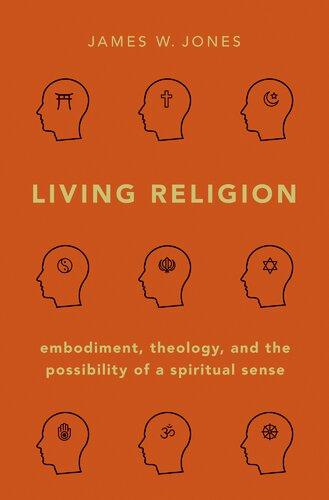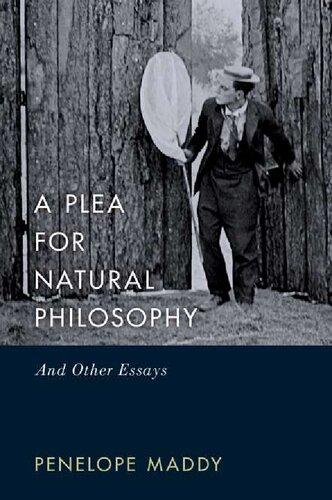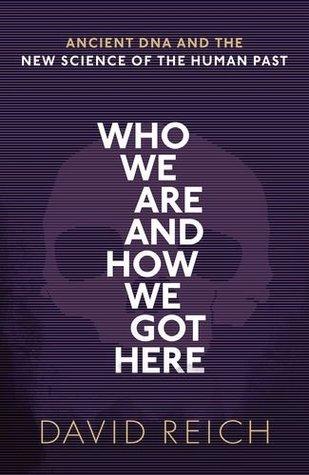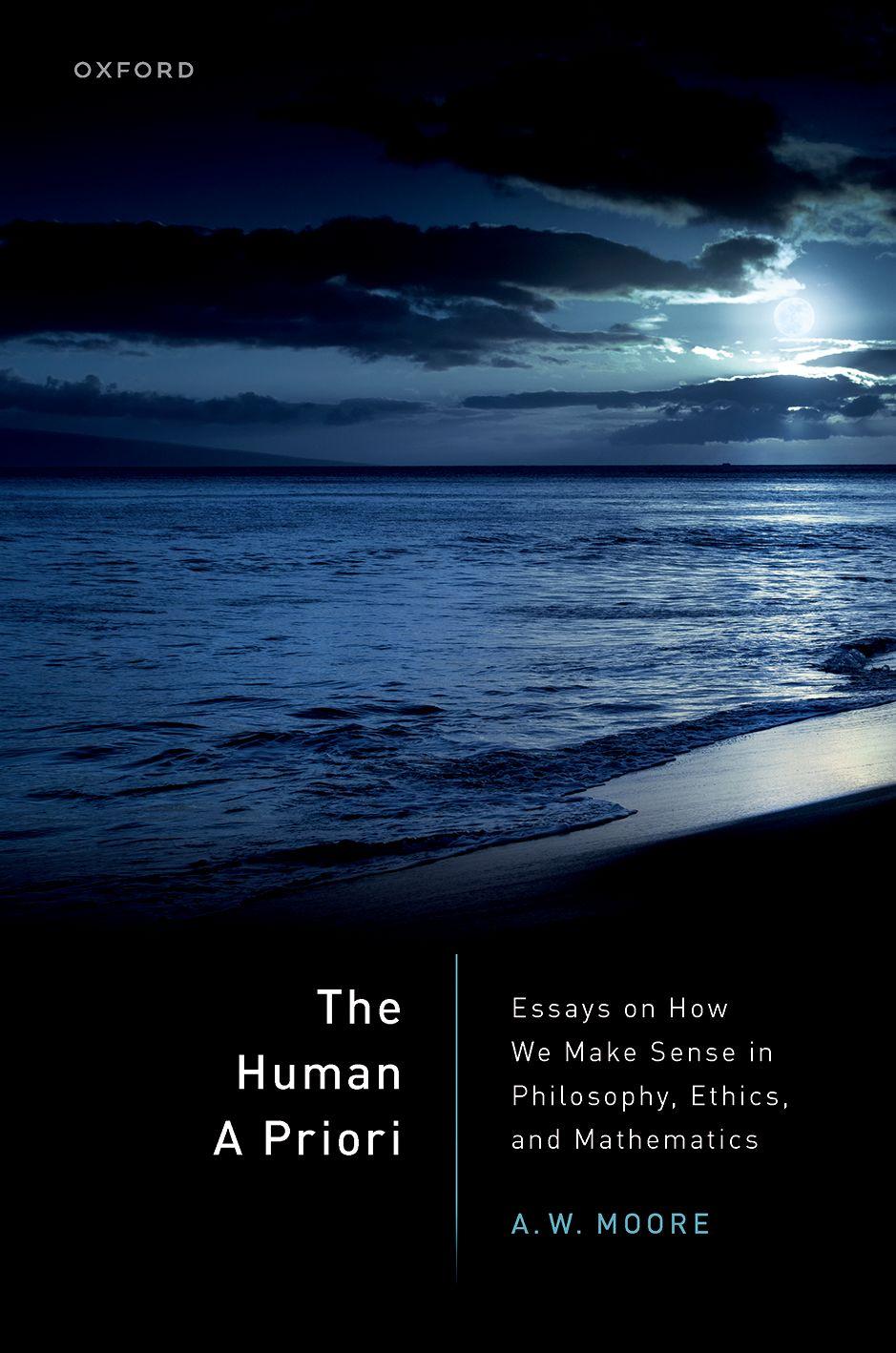ForAndrew
Preface ix
Publisher’sAcknowledgements xi Introduction1
PARTI.THENATURE,SCOPE,ANDLIMITSOF APRIORISENSE-MAKING
1.ArmchairKnowledge:SomeKantianReflections(2023)23
2.OntheNecessityoftheCategories(writtenjointlywithAnil GomesandAndrewStephenson,2022)44
3.WhatDescartesOughttohaveThoughtaboutModality(2019) andPostscript77
4.VarietiesofSense-Making(2013)94
PARTII.HOWWEMAKESENSEINPHILOSOPHY
5.Sense-MakingfromaHumanPointofView(2017)107
6.NottobeTakenatFaceValue(2009)117
7.CarvingattheJoints(2012)127
8.TheConcernwithTruth,Sense, etal. Androcentricor Anthropocentric?(2020)135
PARTIII.HOWWEMAKESENSEINETHICS
9.AKantianViewofMoralLuck(1990)149
10.OnThereBeingNothingElsetoThink,orWant,orDo(1996)171
11.ConativeTranscendentalArgumentsandtheQuestionWhether ThereCanBeExternalReasons(1999)189
12.MaximsandThickEthicalConcepts(2006)210
13.Quasi-RealismandRelativism(2002)226
14.FromaPointofView(2012)233
15.Williams,Nietzsche,andtheMeaninglessnessof Immortality(2006)241
PARTIV.HOWWEMAKESENSEINMATHEMATICS
16.OntheRightTrack(2003)259
17.WittgensteinandInfinity(2011)273
18.Wittgenstein’sLaterPhilosophyofMathematics(2017)291
19.AProblemforIntuitionism:TheApparentPossibilityof PerformingInfinitelyManyTasksinaFiniteTime(1989–90)306
20.Moreon ‘ThePhilosophicalSignificanceofGödel’ s Theorem’ (1999)320
Index
Preface
Theseessaysarereprintedwithrelativelyminoramendments.Manyofthe amendmentsarepurelycosmetic.Some,suchastheadditionofsomecrossreferencesandtheintroductionofsomestandardization,areforthesakeofthe volume.InafewcasesIhavecorrectedwhatInowseeassimplephilosophicalor exegeticalmistakes.Ihavemadenoattempttoeliminaterepetitionfromoneessay toanother:thisispartlytoaccentuateinterconnectionsbetweentheessays,partly toensurethateachessayremainsself-contained.Asfarastheinterconnections areconcerned,IshalltrytoelucidatetheseintheIntroduction.
Threecasesdeservespecialcomment.Essay2isco-authored.Itarosefroman exegeticaldisagreementaboutKantthatIfoundIhadwithtwofriendsandformer students,AnilGomesandAndrewStephenson.Thedisagreementcametolight duringacourseonKantthatAnilandIgaveattheOxfordUniversityDepartment forContinuingEducation.Notonlyhadeachofuspreviouslybeenunawareof thisdisagreement;eachofuswouldpreviouslyhavebeeninclinedtoregardthe matterasuncontentious.AnildiscussedourdisagreementwithAndrew,whose positionwasthesameashis,andbeforelongthethreeofusbecameembroiledina fascinatingtrialogueinwhichwecametoappreciatethatthematterwasboth exegeticallyandphilosophicallymuchlessstraightforwardthananyofushad previouslythought.AnilandAndrewwerepromptedtowriteajointessayin defenceoftheirposition.AfterIhadreadtheiressay,andafterwehadengagedin furtherdiscussionoftheissues,itevolvedintowhatappearshere,whichistosay anessaybyallthreeofusinwhichwemootanintermediatepositionthathadnot originallybeenonanyofourradars arealcaseofthesis,antithesis,andsynthesis.IamverygratefultoAnilandAndrewbothforthestimulationprovidedby workingonthisessaytogetherandfortheirpermissiontoreproduceitinthis volume.ForreasonsthatIshalltrytoclarifyintheIntroduction,itverynicely capturesoneofthemainthreadsthatlinksthewholevolumetogether.
Essay3hasanewpostscript.Thisessaywasoriginallywrittenforaconference tomarkthetwentiethanniversaryofthepublicationofJimConant’swonderful essay ‘TheSearchforLogicallyAlienThought:Descartes,Kant,Frege,andthe Tractatus’.ItengageswithJim’sdiscussioninthatessayofDescartes.Inthe volumethatgrewoutoftheconference,whichiswheremyownessay first appeared,thereisaresponsebyJim.Thepurposeofmypostscriptistocorrect abasicmisunderstandingofmypositiononJim’spart(albeitamisunderstanding thatoccurswithinthecontextofyetfurtherwonderfulworkinwhichheboth developsanddisruptssomeofthemaincontentionsofhisownoriginalessay).
Asithappens,forreasonsthatIshallagaintrytoclarifyintheIntroduction,this materialtooverynicelycapturesthethreadthatImentionedabovethatlinksthis volumetogether.
Finally,Essay10istheessaythathasundergonethegreatestrevision.When IreturnedtoittoconsideritforinclusioninthisvolumeIfoundmuchto dissatisfyme.Itsimperfectionswereduepartlytothefactthatitendedwitha statementofideaswhich,thoughIhadalreadydefendedthemandwouldgoonto developthemelsewhere,Ididnomorethanstateinthiscontext.Theresultwas hurriedand Inowrealize bemusing.Therevisedversionisalittlelesshurried, andIhopealittlelessbemusing.ThiswasnothowevertheonlysourceofEssay 10’simperfections.Anotherwasthat,sofarfromcapturingthethreadtowhich Ihavereferred,itcutacrossit.ThistooissomethingthatIshalltrytoclarifyinthe Introduction.ButIhavemadenoattempttoremovethisimperfectionsince,inits ownway,ithelpstodrawattentiontothatthread.InfactIshallusesomeofwhat isatissueheretostructuretheIntroductionandtoindicatewhatthethreadis.
IthankPeterMomtchiloff,philosophyeditoratOxfordUniversityPress,for hisadvice,encouragement,andsupport.Ialsothanktheeditorsandpublishersof thevolumesinwhichtheseessays firstappearedforpermissiontoreprintthem.
Publisher’sAcknowledgements
Essay2, ‘TheNecessityoftheCategories’,writtenjointlywithAnilGomesandAndrew Stephenson,wasoriginallypublishedin ThePhilosophicalReview, 131 (2022):129–68.
Essay3, ‘WhatDescartesOughttoHaveThoughtAboutModality’,wasoriginallypublishedinSofiaMiguens(ed.),TheLogicalAlien:ConantandHisCritics (HarvardUP2019). Copyright©2020bythePresidentandFellowsofHarvardCollege.Usedbypermission.All rightsreserved.
Essay4, ‘VarietiesofSense-Making’,wasoriginallypublishedin MidwestStudiesin Philosophy, 37 (2013):1–10.
Essay5, ‘Sense-MakingfromaHumanPointofView’,wasoriginallypublishedin Giuseppinad’OroandSørenOvergaard(eds), TheCambridgeCompanionto PhilosophicalMethodology (CambridgeUP2017):44–55.
Essay6, ‘NottobeTakenatFaceValue’,wasoriginallypublishedin Analysis, 69/1 (2009): 116–125.
Essay7, ‘CarvingatTheJoints’,wasoriginallypublishedinthe LondonReviewofBooks, 34/16 (30August2012):21–23.
Essay8, ‘TheConcernWithTruth,Sense, etal AndrocentricorAnthropocentric?’ ,was originallypublishedin Angelaki 25/1–2 (2020).
Essay9, ‘AKantianViewofMoralLuck’,wasoriginallypublishedin Philosophy,Vol. 65, no. 253 (1990):297–321.
Essay10, ‘OnThereBeingNothingElsetoThink,orWant,orDo’,wasoriginallypublished inSabinaLovibondandS.G.Williams(eds), EssaysforDavidWiggins:Identity,Truthand Value (Blackwell1996):165–84.
Essay11, ‘ConativeTranscendentalArgumentsandtheQuestionWhetherThereCanBe ExternalReasons’,wasoriginallypublishedinRobertStern(ed.), Transcendental Arguments:ProblemsandProspects (OUP1999):271–92.
Essay12, ‘MaximsandThickEthicalConcepts’,wasoriginallypublishedin Ratio, 19 (2006):129–147.
Essay13, ‘Quasi-RealismandRelativism’,wasoriginallypublishedin Philosophyand PhenomenologicalResearch,Vol. 65,No. 1 (2002):150–56.
Essay14, ‘FromaPointofView’,wasoriginallypublishedin PhilosophicalQuarterly, Vol. 62,No. 247 (April2012):392–8.
Essay15, ‘Williams,Nietzsche,andtheMeaninglessnessofImmortality’,wasoriginally publishedin Mind,Volume 115,Issue 458 (2006):311–30.
Essay16, ‘OntheRightTrack’,wasoriginallypublishedin Mind,Volume 112,Issue 446 (2003):307–22.
Essay17, ‘WittgensteinandInfinity’,wasoriginallypublishedinOskariKuuselaandMarie McGinn(eds), TheOxfordHandbookofWittgenstein (OxfordUP2011):105–21.
Essay18, ‘Wittgenstein’sLaterPhilosophyofMathematics’,wasoriginallypublishedin Hans-JohannGlockandJohnHyman(eds), ACompaniontoWittgenstein (Blackwell 2017):319–31.
Essay19, ‘AProblemforIntuitionism:TheApparentPossibilityofPerformingInfinitely ManyTasksinaFiniteTime’,wasoriginallypublishedin ProceedingsoftheAristotelian Society 90/1 (1989‒90):17–34.
Essay20, ‘Moreon “ThePhilosophicalSignificanceofGödel’sTheorem”’,wasoriginally publishedin GrazerPhilosophischeStudien, 55/1 (1999):103–126.
Permissionstorepublisharegratefullyacknowledged.
Introduction
Partoftherationaleforcollectingtheseessaystogetheristhattheyareall concerned,inonewayoranother,withtheapriori.Butthereisamorefundamentalandmoredistinctiveunifyingtheme:theessaysallreckon,againinone wayoranother,withwhatIseeassomethingineliminablyanthropocentricinour systematicpursuitofapriorisense-making.
Ishallnottrytoprovideaprecisedefinitionoftheapriori.Giventherangeof theseessays,andgiventheextenttowhichtheirconcernwiththeaprioriisa matterofunspokenbackgroundpresuppositionratherthandirectengagement,it suitsmypurposestoallowasmuchlatitudeaspossibleinhowthetermistobe understood.Thisincludeslatitudeinhowitsverydomainistobeunderstood: doesthetermapplytotruths?tostatesofknowledge?toconcepts?tomodesof investigation?tojustificationsforwhatisbelieved?possiblyeventofeaturesof reality?ItislargelytoaccommodatethislatitudethatIhaveelected,inthis Introduction,tousetheblanketterm ‘sense-making’ asthecomplementof ‘ a priori’.For ‘sense-making’ canitselfbeunderstoodinasuitablywidevarietyof ways.Andevenifitdoesnotcaptureallofwhathasbeenclassifiedbyphilosophersas ‘apriori’,itsownclassificationas ‘apriori’ allowsforextensiontoother cases:forinstance,atruthmaybesaidtobeaprioriifitcanbeknownasaresult ofapriorisense-making.Allthatreallymatters,forcurrentpurposes,isthat ifsomethingcanbeclassi fiedas ‘sense-making’,andifitmanagestodowhatever itisintendedtodoindependentlyofexperience,thenitcanalsobeclassi fiedas ‘apriori’ .
JustasIshallrefrainfromtryingtoprovideaprecisedefinitionoftheapriori, sotooIshallrefrainfromtryingtoprovideaprecisedefinitionoftheanthropocentric.Againallthatreallymatters,forcurrentpurposes,isthattheterm indicateswhatisfromahumanpointofview,andthat ‘human’ inturnistobe understoodinrelationtoHomosapiens.ThisreferencetoHomosapiensmight havebeenthoughttogowithoutsaying.Butitdeservestobemadeexplicit,ifonly becauseofanon-biologicalunderstandingoftheterm ‘human ’ thatwe find,at leastarguably,andatleastsometimes,inKant.Onthatunderstandingtheterm denotes finiterationality.¹Interestingly,thismakestheconceptofthehumanitself apriori though,moreinterestinglystill,thereisanargumentduetoMichael
¹Seee.g.Kant(1996a),4:428ff.andKant(1996d),6:26ff.
TheHumanAPriori:EssaysonHowWeMakeSenseinPhilosophy,Ethics,andMathematics.A.W.Moore, OxfordUniversityPress.©A.W.Moore2023.DOI:10.1093/oso/9780192871411.003.0001
Thompsonthattheconceptofthehumanisapriorianyway,evenwhenitis understoodbiologically.²Thisraisessomefascinatingissuesthatareclearly pertinenttowhatIhaveidentifiedastheunifyingthemeoftheseessays.Even so,Imentionthemprincipallytosetthemaside.Forthequestionwhetherornot theconceptofthehumanisitselfaprioriisstrictlyorthogonaltothequestion whetherornotwhatisaprioriisboundupwiththehumaninthewayIam claiming.Eitheranswertothe firstquestioniscompatiblewitheitheranswerto thesecond.
InordertogiveaninitialindicationofwhyIseetheconnectionthatIdo betweentheaprioriandthehuman,IamgoingtopresentsomethingthatIwill call ‘theBasicModel’.IntheBasicModel,thereissomesubject S whoisin possessionofsomeconcept c whichisintegraltosomeapriorisense-makingthat S achieves,butthereisalsosomethingradicallyparochialabout S’spossessionof c. Asimpleexamplewouldbeasubjectwho,byvirtueofpossessingtheconceptofa wife,deducesapriorithatthereareatleastasmanywomenandgirlsasthereare wives.Theapriorityof S’sdeductionisinnowaycompromisedbythefactthat thereisacomplicatednetworkofhighlycontingentsocialstructuresandvalues thatsupporttheinstitutionofmarriageandthatserveasapreconditionofany subject’spossessinganysuchconceptinthe firstplace.TheBasicModelistherefore alreadyenoughtoindicatehowtheaprioricanbegroundedintheparochial.Itis notahugeleapfromtheretothethoughtthattheaprioricanbegroundedin peculiaritiesofanentirespecies;norfromtheretothethoughtthattherecanbea priorisense-makingthatmayappropriatelybesaidtobefromthepointofviewof thatspecies;norfromtheretothethoughtthatwehumansandwhataccruesfrom oursystematicpursuitofapriorisense-makingareacaseinpoint.
ImentionedinthePrefacethatEssay10haswhatInowseeasanimportant imperfectionwherebyitcutsacrossoneofthemainthreadsthatlinkstogether thisvolumeasawhole.InthebulkofwhatfollowsinthisIntroductionIshallsaya littleabouteachoftheessaysintheorderinwhichtheyoccur;but firstIwantto amplifyonwhatIhadinmindwhenImadethatcommentaboutEssay10,and todrawonsomerelatedmaterialinEssay12,sincethiswillhelptoclarifythe BasicModel.
Essay10isconcernedwithanideathatoccursinDavidWiggins’swork:the ideaoftherebeingnothingelsetothink.³InthatessayIexploreawayof construingthisideawherebytheclaimthatthereisnothingelsetothinkbut that p isequivalenttotheclaimthatitistruethat p.Thisinturninvolvesthe followingsubsidiaryidea:ifitistruethat p,thenanyonewhodoesnotthinkthat p paysaprice.Butwhatisitnottothinkthat p?Itiseasytoassume,andintheessay Iineffectdidassume,thatnotthinkingthat p musttakeoneofthreeforms:
²Thompson(2004).
³Forafascinatingdiscussionofthisidea,andofotherrelatedideas,seeDiamond(2019).
thinkingtheopposite;beingself-consciouslyagnosticaboutthematter;ornot evenconsideringthematter,possiblynotevenbeinginapositiontoconsiderit. ButevenatthetimeofwritingtheessayIwasawareofwhatmanypeople,Bernard Williamsinparticular,wouldregardasanimportantfourthpossibility.Igesture towardsthispossibilityinfootnote29oftheessay,albeitonlytoregistermy disagreementwithWilliams.However,asIindicateinaparenthesiswithinthat footnoteaddedforthereprint,Ihavesubsequentlyarrivedatamoresympathetic viewofwhatWilliamshasinmind.
TounderstandwhatWilliamsdoeshaveinmindwecanexploitsomeofthe materialthatIpresentinEssay12.IthereofferadistinctionbetweenwhatIcalla ‘disengaged’ graspofaconceptandan ‘engaged’ graspofit adistinctionwhich Ifudgeinfootnote29ofEssay10whenItalkof ‘having’ athought,andwhichfor thatmatterIfudgeinEssay10asawholewhenItalkof ‘thinking’ thatsomething isthecase.ThisdistinctionapplieswhenaconceptiswhatWilliamswouldcalla ‘thick’ concept,thatisaconceptwithbothafactualaspectandanevaluative aspect.Anexampleistheconceptofinfidelity:ifIclaimthatyouhavebeen unfaithful,thenIsaysomethingstraightforwardlyfalseifyouhavenotinfactgone backonanyrelevantagreement;butIalsotherebycensureyou.Anotherexample, albeitoneinwhichtheevaluativeaspectissomewhatsubtler,isthatwhichIused toillustratetheBasicModel:theconceptofawife.Tograspathickconceptinthe disengaged wayistobeabletorecognizewhentheconceptwouldcorrectlybe applied,tobeabletounderstandotherswhentheyapplyit,andsoforth.Tograsp suchaconceptinthe engaged wayisnotonlytobeabletodothesethingsbutalso tobepreparedtoapplyitoneselfandhencetosharewhateverbeliefs,concerns, andvaluesgiveapplicationoftheconceptitspoint.Talkof ‘having’ athought,or evenof ‘thinking’ something,andotherrelatedtalk,canthenbeunderstoodin twocorrespondingways:intheengagedwaywherebyitrequireshavingan engagedgraspofalltherelevantconcepts;andinthedisengagedwaywherebyit doesnot.Andif ‘thinking’ that p isunderstoodintheengagedway,thenthereis indeedafourthformthatnotthinkingthat p cantake:namely, ‘considering’ the matter,wherethisisunderstoodinthedisengagedway,andpossiblyeven ‘recognizing’ thatitistruethat p,wherethistooisunderstoodinthedisengaged way,butnotoneselfbeingpreparedtoapplyoneoftherelevantconcepts andthusnotoneselfthinkingthat p.Moreover,allofthismaybecompletely self-conscious.Onemaynotthinkthat p becauseonerepudiatestheconceptin questionassomehowpernicious.Thereasonwhythisposesaparticularthreatto myprojectinEssay10isthat,iftheconcept is somehowpernicious,thentheidea thatonepaysapricefornotthinkingthat p whenitistruethat p isclearly compromised:theveryperniciousnessoftheconceptmaymeanthatoneisbetter offnotthinkingthat p,becauseoneisbetteroffnotthinkinginsuchtermsatall. TherelevanceofallofthistotheBasicModelshouldbeclear.Icouchedthe BasicModelintermsof ‘sense-making’,atermwhoseversatilityIhavealready
heralded,andintermsof ‘possession’ ofaconcept,atermonwhichIdidnot expand.Importantly,thedistinctionbetweentheengagedwayofunderstandinga termandthedisengagedwayofdoingsoapplytobothofthese.Inparticular,both canbeunderstoodintheengagedway.Andiftheyare,thentheinstanceofthe BasicModelthatIgaveconcerningwivesturnsouttobejustoneofawholefamily ofinstancesthatinvolvethickconcepts.Forthereiscertainlysomethingparochial aboutanyone’spossessionofathickconcept,sounderstood;andsuchpossession cancertainlybeintegraltoapriorisense-making,sounderstood.Inwhatfollows IshallfrequentlyreturntotheBasicModel.
Nowthereareoftenthoughttobethreegreatexemplarsofthesystematic pursuitofapriorisense-making:philosophy,ethics,andmathematics.Theessays inPartsII,III,andIVdealrespectivelywitheachofthese.Theessaysthatprecede theminPartIdealwiththeverynatureofapriorisense-makingandintroducethe anthropocentrism.Muchoftheattentionthroughoutisdevotedtotheworkof otherphilosophers.But,evenwhenitis,Itakeittobeofmorethanexegetical interest.OneofthelessonsthatItaketoemerge,eitherinoppositiontotheviews oftheseotherphilosophersorbyinvocationoftheirviews,isthatwehumans achievenothingofrealsignificanceinphilosophy,ethics,ormathematicsexcept fromahumanpointofview.Initselfthisdoesnotforceustoconcludethatthere isanythingineliminablyanthropocentricaboutoursystematicpursuitofapriori sense-making.Afterall,itmaybethatnoneofthesethreedisciplinesisthe systematicpursuitofapriorisense-makingthatitistakentobe.Thisisnotin factmyownconclusion,althoughitwouldbestrikingenoughifitweretheonly alternative.Myownconclusionisthatphilosophy,ethics,andmathematicseach betokenwhatmayreasonablybecalled ‘thehumanapriori’ .
1.PartI:TheNature,Scope,andLimits ofAPrioriSense-Making
GivenwhatIhavesaidsofar,Kantmightbeexpectedto figureintheseessaysasa hero.Ishenotthegreatchampionofthehumanapriori?Oneofhisprimary metaphysicalprojectsis,afterall,toaccountforacertainkindofapriorisensemaking;andthewayinwhichhedoessoisbyappealtoexperience-independent cognitiveresourceswhichwehumanshaveandwhich,forallweknow, only we humanshave.Notonlyaretheseintegraltotheapriorisense-makinginquestion, theyareintegraltoitinawaythatmakesitentirelyappropriatetosaythatsuch sense-makingisfromahumanpointofview possiblyevenfromapeculiarly humanpointofview.⁴
⁴ Cf.Kant(1998),A26/B42.
InmanywaysKantdoes figureintheseessaysasahero.Heisthefocusofeach ofthe firsttwoessays.Nevertheless,theprincipallessonofEssay1isthatthereis somethingbadlywrongwithKant’sownvisionofthehumanapriori.Thisvision hasthreecriticalcomponents:
(Necessity)Whenwemakeapriorisenseofthingsfromourhumanpointof view,wemakesenseofthemasnecessarilybeingacertainway.⁵
(Dependence)Things’ beingthatwayisdependentonthatpointofview.
(Inescapability)Wecannotmakesenseofthings except fromthatpointofview.
Butthereisanincoherenceinsupposingthatwecanacknowledgeallthreeof these.FortoacknowledgeDependenceistoacknowledgeacontingencyinthings’ beingthatway.And,givenNecessity,thisistomakesenseofthingsfromother thanourhumanpointofview(whichpresumablymeans,inthiscontext,fromno pointofviewatall).ButthisiswhatInescapabilitysayswecannotdo.
InthepenultimatesectionofEssay1IarguethatasignificantpartofKant’ s problemisthenatureoftheexperience-independentcognitiveresourcesthathe invokestoexplainourapriorisense-making.Heincludesaspectsofhowwethink. Buthealsoincludesaspectsofhowwereceivematerialtothinkabout.Andhe doesthelatterinsuchawaythathe also includesaspectsofthatverymaterial, specificallyitsspatialityandtemporality.Bythetimehehasdoneallofthisheis committedtoDependence.Hadheonlyincludedaspectsofhowwethink,any anthropocentrismthatthisinvolveswouldnothaveinfectedthesubjectmatterof ourthoughtsandwouldnothavecompromisedthenecessityinhowwemake senseofthingsasbeing.WecanappreciatethisbyreconsideringtheBasicModel. Howeverparochialthefactthatagivensubjectthinksintermsofwives,torevert tothatexample,thissubjectisinapositiontoseethatthere must befewerofthem thantherearewomenandgirls.⁶
Isaidthat,hadKantonlyincludedaspectsofhowwethinkintheresourcesthat heinvokestoexplainourapriorisense-making, ‘anyanthropocentrismthatthis involves’ wouldnothaveinfectedthesubjectmatterofourthoughts.Butwhat anthropocentrismdoesthisinvolve?Isitakintotheanthropocentrisminvolvedin theotherresourcesthatheinvokes,thatistosayinthespatialityandthe temporalitythatareoperativeinhowwereceivematerialtothinkabout?In theircase,althoughKantthinkstheyarepartofourhumanpointofview,and althoughhethinkswecanknowthis,thisisthelimitofwhathethinkswecan
⁵ Thisisnottobeconfusedwiththethesislabelled ‘Necessity’ inEssay2.
⁶ Inthe finalsectionofEssay1Imootanotherwayinwhichtheproblemcouldbeaverted,albeita waythatwouldtakeusevenfurtherfromKant’sownposition.Wecoulddevelopaconceptionofa priorisense-makingthatallowsforcontingencyinhowthingsaretherebymadesenseofasbeing.But Ishallnotnowdwellonthemanyfurtherissuesthatthisraises.
know.Wecannot,inKant’sview,knowwhethertheyarepartofthepointofview ofother finitesense-makers(ifsuchtherebe)norforthatmatterwhethertheyare partofthepointofviewofallpossible finitesense-makers. ⁷ Theissueiswhether headoptsananalogouscircumspectionconcerningtheresourcesthatareoperativeinhowwethink,orwhether,intheircase,hereckonsthatwecanknowmore: specifically,thatthey are partofthepointofviewofallpossible finitesensemakers.ThisistheissuethatAnilGomes,AndrewStephenson,andIaddressin Essay2.⁸ Weendupmootingasecond-ordercircumspectiononKant’spart wherebytheanswerisneither althoughtherearereasonsofprinciplewhy Kanthadbetternotexplicitlyendorsethisposition.⁹
InEssay3attentionshiftstoKant’spredecessorDescartes.Descarteslikewise seesananthropocentrisminourapriorisense-making.Andhelikewiseembraces aversionofNecessity.Bothofthesearemanifestwhen,inmakingapriorisenseof things,weatthesametimemakesenseofthemasnecessarilybeingacertainway. For,onDescartes’sconception,forthingsnecessarilytobeacertainwayisforthe denialthatthingsarethatwayto ‘ conflictwithourhumanconcepts’.¹⁰
NotonlyisthereaversionofNecessityatworkhere,though.Thereisalsowhat appearstobeaKantianpredicamentintheoffing,asweseewhenDescartespits hisconceptionofnecessityagainsthisconceptionofGod.Forheisreluctant tosaythatanynecessityinhowthingsareisnecessity evenforGod.Thisisin largepartbecausehebelievesthat ‘everybasisoftruth ...dependson[God’s] omnipotence’,¹¹fromwhichitfollowsthateventhosethingsthatarenecessarilya certainwayareultimatelythatwayonlybecauseGoddecreesthattheyare.From thisinturnitfollows,orratheritseemstofollow Ishallreturntothesignificanceofthisquali ficationshortly thatthenecessityinquestionisatmosta necessity forus,anecessityrestingonadeepercontingencyaboutourhuman pointofviewandtheplayofourconceptsthere.Thisisnotthecontingencyof Dependence:thelinkhereisbetweenourhumanpointofviewand thenecessity itself,notbetweenourhumanpointofviewandwhatthenecessityattachesto.But itmakesforsimilartrouble.Anditdoesmeanthat,ifananalogueofInescapability isatworkinDescartes,asitplausiblyis,thentheapparentKantianpredicament towhichIhavereferredisarealone.
Infact,however,itistheburdenofEssay3toarguethatitismerelyapparent. DescartesisatperfectlibertytodenythatwhatIsaidseemstofollowdoesfollow; andheisatperfectlibertytoinsistthatthenecessityinquestionisindeed
⁷ Kant(1998),A27/B43andB72.
⁸ ForthosewhohavereadmyPrefaceandarecurioustoknowwhatourdisagreementwas,Icanadd thatIoriginallythoughtthatIcoulddefendtheformeroftheseexegeticalalternatives,whileGomesand Stephensonoriginallythoughtthattheycoulddefendthelatter.
⁹ Somereadersfamiliarwithotherworkofmine,oninexpressibility,mayseethestampofthatwork onthisconclusion.Theywouldbewrongtodoso.ThesilencerequiredofKantherehasnothingtodo withinexpressibility.ItissilenceonanissuethatItakemyselftohavejustexpressed.
¹
⁰ Descartes(1984b), ‘SecondSetofReplies’,p.107.¹¹Descartes(1991),p.359.
necessity evenforGod.Hecandothesethingsbydoingwhathisapriori reflectionsontheseissuesmeanthatheshouldonlyeverhavebeendoing albeit,forreasonsthatIhaveindicated,heissometimesdiffidentaboutdoing namely,heedingtheanalogueofInescapabilityandrestingcontentwithmaking senseofthingsfromourhumanpointofview.Thismakesanyclaimthatthe necessityinquestionisnecessityevenforGodharmlesslyanthropocentric.Itdoes nothingtogainsaythefactthateventhosethingsthatarenecessarilyacertainway areultimatelythatwayonlybecauseGoddecreesthattheyare.Insayingthatthey arenecessarilythatwaywearesayingonlythatitwouldconflictwithourhuman conceptstodenythatthatishowtheyare.(Wearealsoalludingtoourmeansof comingto know thatthatishowtheyare.)Initsownway,then,Essay3clearly developsthethemeofthehumanapriori.Inabriefpostscripttotheessay IcorrectamisunderstandingoftheessayduetoJamesConantthatprecisely failstorecognizethis.
OfthefouressaysinPartI,Essay4istheonethatisleastobviouslyaboutthea priori.Itistargetedatwhatiscommonlydubbed ‘thenewatheism’.Iusetheessay toexploreaconceptionoftheisticsense-makingforwhichthenewatheismmakes noallowance.AsithappensIbelievethatthisconceptionsignificantlyoverlaps withmybroadconceptionofapriorisense-making;Ialsobelievethat,whereit does,thereissomethingfundamentallyanthropocentricaboutit.So,although noneofthisisexplicitinEssay4,itdoesmeanthattheessayisnottheincongruity whichitmayappeartobe.Evenso,thesignificanceoftheessayforthevolumeasa wholelieselsewhere.Ihaveincludeditbecauseofthewayinwhichitdraws attentiontokindsofsense-makingthatarenotcharacteristicofthenatural sciences.MyhopeisthatittherebyservesasahelpfulpreludetoPartsII,III, andIV.ForIdonotbelievethatwecanproperlygrasptheanthropocentric elementinphilosophy,ethics,ormathematicsuntilwehavecometoappreciate howdeeplythesense-makinginvolvedineachofthesediffersfromthatinvolved inthenaturalsciences(whosesystematicpursuit can reasonablyincludethe aspirationtoabandonthehumanpointofview¹²).Partoftheforceofwhatis tocomeintheremainingessays,therefore asofEssay4itself isanantiscientism.
2.PartII:HowWeMakeSenseinPhilosophy
Suchanti-scientismistotheforeinPartII.Ofthethreedisciplinesaroundwhich theessaysinthisvolumearestructured philosophy,ethics,andmathematics it isphilosophythatisingreatestdangeroffallingpreytoscientism.InEssay5
¹²ThisissomethingthatIargueinA.W.Moore(1997),esp.ch.4.
ItakeasmystartingpointtheviewfamouslydefendedbyBernardWilliamsas asafeguardagainstthisdanger:thatphilosophyisahumanisticdiscipline. Iconsidersomeoftheimplicationsofthisview.However,totheextentthat Essay5iswritteninoppositiontoanyone,itiswritteninopposition,nottothose philosophers,typicallywithintheanalytictradition,whothinkonscientistic groundsthatwecanabandonthehumanpointofviewwhenpractisingphilosophy,buttothosephilosophers,typicallynotwithintheanalytictradition,who thinkthatwecandosoontheverydifferentgroundsthat ‘ we ’ donothaveto understand ‘ourselves’ ashumanbeingsatallandshouldembracewhatis sometimescalled ‘thepost-human’.Ifphilosophersoftheformerkindareintoo muchthrallofthenaturalsciences,thenphilosophersofthelatterkindareintoo littlethrall,itseemstome,oftheirownhumanity.Thesheerfactthattheyadopt suchastanceindicatesthattheyhaveagreateraversiontophilosophicalconservatismthantheyhavetophilosophicallossofidentity.AndwhileIamcertainly consciousofthedangersofphilosophicalconservatism totheextentthatIagree thatweshouldbe ready toembracethepost-human neverthelessthereis somethingsoimportantaboutourhumanitythatthedangersofphilosophical lossofidentitystrikemeasbeingaltogethergraver.
ItisinEssays6and7thatmyoppositiontophilosophersoftheformerkind thosewhothinkonscientisticgroundsthatwecanabandonthehumanpointof viewwhenpractisingphilosophy ismostevident.Eachoftheseessaysistargeted atabookbyaphilosopherintheanalytictradition.ThetargetinEssay6is The PhilosophyofPhilosophy byTimothyWilliamson;thetargetinEssay7is Writing theBookoftheWorld byTheodoreSider.¹³Andeachofthesebooksisadefenceof whatIseeasjustsuchascientisticconceptionofphilosophy orrather,inthecase ofSider’sbook,ofmetaphysics,althoughItakemetaphysicstobeasubdisciplineof philosophythatisinrelevantrespectstypicalofthedisciplineasawhole.
Myoppositiontakesasomewhatdifferentformineachofthesetwoessays.In Essay6ittakesamorepiecemealform.Itherefocusonafewcharacteristic examplesofhowWilliamson’sscientisticconceptionofphilosophymanifests itself,andItrytoindicateineachcasewhyIseethingsdifferently.Itisworth notingthatoneoftheclearestwaysinwhichitmanifestsitselfisinthedoubtthat Williamsoncasts,notontheviewthatphilosophicalsense-makingisfundamentallyanthropocentric,butratherontheviewthatitisfundamentallyapriori. (Williamsonisingeneralsuspiciousofthesignificancethatphilosophersattachto theapriori.Heisevensuspiciousofthesignificancethattheyattachtoitin connectionwithmathematics.SomeofwhatIsayinEssay6isaforetasteofsome ofwhatistocomeinPartIV.)IntryingtocounteractWilliamson ’sconceptionof philosophyIthushavemyworkdoublycutout.
¹³Williamson(2007)andSider(2011),respectively.
InEssay7myoppositiontakesamoresystematicform.Siderseesmetaphysics ascontinuouswithphysics;andhedevotessomeofhisbooktopractising metaphysics,someofittothemeta-metaphysicaltaskofreflectingonwhathe istherebydoing.Significantly,however,heacknowledgesthatsomesuchreflectionisalreadypartofmetaphysicsitself.Forheseesmetaphysiciansasstandingin asimilarrelationtophysicistsasmeta-metaphysiciansstandtothem(metaphysicians).Morespeci fi cally,heseesmetaphysiciansasreckoningwiththepropriety andworthofwhatphysicistsaredoing.Thesignificanceofthis,asIurgeinEssay7, isthattherecanbenoreckoningwiththeproprietyandworthofanythingexcept fromapointofviewthatallowsfordueevaluation.Inparticular,therecanbeno reckoningwiththeproprietyandworthofwhatphysicistsaredoingexcept fromapointofviewthatallowsfordueevaluationofvarioushumanendeavours,whichistosayahumanpointofview.Sider’ sacknowledgementthatsuch re fl ectionispartofmetaphysicsthereforeconstitutesacrucialconcessionto anyonewhosharesmyconvictionthatthereissomethingineliminably anthropocentricaboutmetaphysicsin particular,andaboutphilosophyin general.NotthatSiderwouldagree.Hewoulddenythattheevaluationin questionislinkedtoapointofviewinthewayIclaim.He has todenythis: thealternativeposesfartoomuchofathreat,ifindeeditdoesnotdealafatal blow,tohisvisionofmetaphysicsascontinuouswithphysics.Butthensomuch theworse,Isay,forthatvision.
ThetargetinEssay8istheworkofanotherphilosopher,althoughthistimea philosopherlesseasilyclassifiedeitherasananalyticphilosopherorasanonanalyticphilosopher:PamelaSueAnderson.Ibelievethatsheerrsintheopposite direction.Muchofmyoppositioninthethreepreviousessayshasbeentotheview thatphilosophycanescapethehuman.Andersonadvancesreasonsforopposing theviewthatphilosophycanescapethe gendered human.Inparticularsheargues thatsomeofmyownphilosophicalworkbetraysmymasculinity.Idisagree, althoughIacknowledgethatshetherebyraisessomeveryimportantissues abouttherelationbetweenphilosophyandthemasculine,betweenphilosophy andthefeminine,andbetweenphilosophyandthehuman.Towardstheendof Essay8ItrytoreinforcearecurringthemeofalltheessaysinPartIIbyinsisting thatitisthethirdofthese therelationbetweenphilosophyandthehuman that isoverwhelminglythemostsignificant.
3.PartIII:HowWeMakeSenseinEthics
TheessaysinPartIIIareconcernedwithethics.Ofthethreedisciplines philosophy,ethics,andmathematics thisistheonethatisliabletoprovoke leastresistancetothethoughtthatitisfundamentallyanthropocentric.On theotherhand,itisalsotheonethatisliabletoprovokemostresistancetothe
thoughtthatitisfundamentallyapriori.Thereisaccordinglyakindofshiftof onusintheseessayscomparedwiththoseinPartII.
The firstfouressaysofPartIIIdirectusonceagaintoKant.Oneofthemany reasonswhyKantissignificantinthiscontextisthatheis,intherespecttowhich Ihavejustadverted,anoutlier.OnKant’sview,ethicsisnotfundamentally anthropocentric,butitisfundamentallyapriori.InsofarasKantisachampion ofthehumanapriori,thisisbecauseofhisviewsaboutapriorisense-makingof thetheoreticalkindthatischaracteristicofphilosophyandmathematics,not becauseofhisviewsaboutapriorisense-makingofthepracticalkindthatis characteristicofethics.Thelatter,forKant,isatrootneithermorenorlessthanan exerciseofpurereason.Assuchitcanbeimplementedbyanybeingwhose facultiesincludereason,betherestofthatbeing’sconstitutionasitmay.This meansthatitisnotonlyaprioriinawaythatdoesnotinvolveitsbeing anthropocentric;itisaprioriinawaythatprecludesitsbeinganthropocentric. Oneofmyaimsinthesefouressaysistoconsidersomeofwhatmakesthe opposedideathatethicsisfundamentallyanthropocentricsoattractive,andto explorehowmuchofKant’scommitmenttotheapriorityofethicscouldsurvive itsassimilation.GivenwhatIhavesaidsofar,theanswerisobviouslynotallofit. Butitisnotobviouslynotanyofit.Theupshotofthesefouressaysisneithera simpledefenceofthatcommitmentnorasimpleattackonit,butrather,in keepingwiththevolumeasawhole,anon-Kantianreconsiderationofapriori sense-makingasitself,eveninitspracticalform,inextricablyboundupwiththe human.
InEssay9IconsidersomeoftheconsequencesofKant’sviewthat,eventhough ethicsisnotfundamentallyanthropocentric,thereissomethingfundamentally anthropocentric,possiblyevenpeculiarlyanthropocentric,aboutthewayinwhich itsdemandsappeartousasobligations.Thefactthatwearenotjustrational beings,butrationalanimals withalltheneeds,desires,anddrivesthatthis entails meansthatwearenotalwaysinclinedtodowhatitwouldbepurely rationaltodo.Hence,asKanthimselfpointsout,whatwewouldwillinglydoifwe werepurelyrationalappearsintheguiseofwhatwe ought todo.¹⁴ Andwhenwe donotdoit,thereareissuesthatarise,andthatcreateacertainawkwardnessfor Kant,aboutwhatkindofafailingthisis,aboutwhatkindofcontrolwehaveover whatwedoinstead,andaboutwhatkindofrelationshipthereisbetweensuch control orlackofcontrol andourblameworthiness.StPaultakesanextreme viewinhislettertotheRomans: ‘[W]hatIdoisthewrongwhichisagainstmy will;andifwhatIdoisagainstmywill,clearlyitisnolongerIwhoamtheagent, butsinthathasitslodginginme.’¹⁵ Kantisunderpressuretosaysomething similar.Butitispressurethatheresists.(Thisistheprimaryreasonforthe
¹⁴ E.g.Kant(1996a),4:449.¹⁵ Romans7:19–20.
awkwardnesstowhichIreferred.)OnKant’sview,ifIincurblamefordoing somethingotherthanwhatIoughttodo,thenthereisnoquestionbutthat Imyselfamtheagent.
Inexploringallofthis,Iamplayingoutacuriousvariationonthethemeof Essay3concerningDescartes,inasmuchasIamdirectingattention,notatthe contentofanyofouraprioriinsights,butatthekindofnecessitythatattachesto themfromourhumanpointofview.Thereisevenahintofsomethingelsefrom Essay3:theideathatwecandogreatestjusticetotheresultantpositionby adheringresolutelytothehumanpointofviewandnottryingtomakesenseof anyofthisexceptfromthere.Nomatterhowmuchjusticewedototheresultant position,however,itwillstillcontainelementsthataremysterious,counterintuitive,orboth,forinstancetheidea,whichisrelatedtothepressurethat Kantisunder malgrélui toalignhimselfwithStPaul,thatthereisnosuch thingasatotallyfreeactofwrong-doing.Itwillalsocontainelements,asI finish theessaybybrieflyexpounding,thatreflectfurtherdiscomfortonKant’spartwith whatStPaulsays.Inparticular,KantwillnotwanttojoinStPaulinsayingthata person ’sblameworthinessfordoingsomethingotherthanwhattheyoughttodo canbeannulledbydivinegrace.ForjustasitgoesagainsttheKantiangraintosay thatsomeonecanincurblameasaresultofsomethingthatsindoes,sotooitgoes againsttheKantiangraintosaythatsomeonecanforegoblameasaresultof somethingthatGoddoes.Fornon-Christiansthismayseemarelativelyarcane matter.ButforChristiansandnon-Christiansalikeitservesasareminderofthe puritythatKantseesinourpracticalsense-making whilesomeoftheother elementsintheresultantpositionserveasareminderofthemessinessthathe encountersinhisattempttomakesenseofthatpurityfromourhumanpoint ofview.
ButwhataboutthequestionthatI flaggedabove,abouthowmuchofwhatKant seesinourpracticalsense-makingcansurviveifthepurityisremoved,thatisif suchsense-makingisitselfreckonedtobefromourhumanpointofview?One thingseemsclear.Whateversurvives,weshallencounterasimilarmessiness,if notamuchgreatermessiness,intryingtomakesenseofitfromourhumanpoint ofview.Whatis not cleariswhetherthismatters.Oncewehaverelinquishedthe viewthatourpracticalorethicalsense-makingisanexerciseofpurereason,we shallbelessbeholdentotheparticularnotionsoffreedom,control,wrong-doing, andsuchlikethatmadeformysteryandcounterintuitivenessinthemessinessthat Kanthimselfencountered.Themessinessthatweencounterisliabletostrikeusas simplythemessinessoflife.Infacttherearesomeimportantlessonstobelearned hereabouthowthecombinationoftheaprioriwiththehumanisalways vulnerabletotheinterferencewiththeaprioribythehuman.Thatis,thereare someimportantlessonstobelearnedabouthowtheattempttomakeapriori senseofthingsfromahumanpointofviewhasitsowndistinctivewaysofmeeting withfailure.
Essays10and11arelikewiseconcernedwiththekindofnecessitythatattaches totheethicalfromourhumanpointofview.Neitheressaydefendstheviewthat ethicsisanarenaforthehumanapriori.Neither,cometothat,defendstheview thatethicsisanarenaforanykindofapriori.Butbothportraythenecessityin questionashavingsomeaffinitywiththekindofnecessitythatcharacterizesoura priorisense-making,andbothcombinethatwithanindicationofhowsuch necessityhasthespecialforcethatithasfromahumanpointofview.Ihave alreadydiscussedthe flawinEssay10,andthewayinwhichthis flaw,once perceivedassuch,putsusinmindoftheBasicModelandtherebypreparesusfor thepossibilityofthehumanapriori.Thesignificantpointhere,however,isthat Essay10managestoprepareusforthatpossibilityanyway.Thecrucialworkis donebysomethingthatIrefertoinEssay10as ‘theBasicIdea’—wherethatlabel, incidentally,doesnotbetokenanyspecialconnectionwithwhatIhavebeen calling ‘theBasicModel’.TheBasicIdeaisthathumanbeingsare finite,but haveanaspirationtobeinfinite.¹⁶ Itisthisthatallowsthenecessitytohavethe specialforcethatithasfromourhumanpointofview;forthenecessityisprecisely tobeexplainedintermsofcertainmarksoftheinfinitudetowhich,accordingto theBasicIdea,weaspire.Notthatthedetailsoftheaccount(whichareinanycase verysketchyinEssay10)arewhatreallymatterinthiscontext.Muchmore importantandmuchmorefundamentalthantheBasicIdeaitself bethetruthof theBasicIdeaasitmay,andindeedbetheinterpretationoftheBasicIdeaasit may isthebroaderideaofsomesharedconativestateamonghumanbeingsthat influencesoursenseofnecessity.Ifthereisanysuchstate,thenthereisscopeforit likewisetoinfluenceourapriorisense-makingandtopreparethewayonceagain forakindofhumanapriori.
Thatsamebroaderideaplaysasimilarlycrucialrole,andasimilarlyrelevant role,inEssay11 wherethenecessityhasanewguise,asthenecessitythat animatesakindoftranscendentalargument.Morespecifically,IargueinEssay 11that,justastheremaybetranscendentalargumentsofaKantiankindforthe conclusionthatthingsarethusandso,proceedingviatheintermediateconclusion thatitisnecessaryforustobelievethatthingsarethusandso,sotootheremaybe ‘conative’ variantsofthesetranscendentalargumentsforthedesirabilitythat thingsarethusandso,proceedingviatheintermediateconclusionthatitis necessaryforustodesirethatthingsarethusandso(insomesuitablybroad senseof ‘desire ’).Anditisthenecessityofourdesiringthatthingsarethusandso thatexempli fiesthebroaderidea:thereisaconativestatewhich,ontheonehand, weallhavebecausewecannothelphavingit,andwhich,ontheotherhand, influencesoursenseofnecessity,includingtheverynecessityofourhavingit. MuchofEssay11isconcernedwithtracingtheseelaborateinterconnections.
¹⁶ Cf.Cavell(1979),p.109;andConant(1991b),p.634.
NeitherEssay10norEssay11isprimarilyaboutKant.InfactEssay10,as Ihavealreadyindicated,isprimarilyaboutDavidWiggins,whoserelatedideaof therebeingonlyonethingthatonecanthinkaboutagivenissueisanideathathe woulddistancefromanythingpeculiarlyKantian,orindeedfromanythingtodo withtheapriori.¹⁷ Nevertheless,bothessayshaveclearKantianresonances.And, insofarastheydepartfromKantinwhatroomtheyleaveforanunderstandingof theethicalasapriori,theydosopreciselybyallowingaspectsofourhumanity backin.Thistheydobytakingseriouslytheideathatwehumansallsharea conativestatethatshapesallourethicaldeliberations,aprioriandempiricalalike.
Thefourthoftheessaysinthisquartetislikethe firstinbeingmorestraightforwardlyaboutKant.Anditispivotaltothevolumeasawhole.Foritishere,in Essay12,thatwe findthemostgraphicillustrationoftheBasicModel.(Thisis whyIhadoccasiontorefertoEssay12earlierintheIntroduction.)Itisheretoo thatwemostdirectlyconfrontthequestionofhowmuchofKant’sowncommitmenttotheapriorityofethicscouldsurviveassimilationoftheideathatethicsis fundamentallyanthropocentric.Ethics,forKant,isanexerciseofpurereason.But evenKantacknowledgesthatethicsisapplicabletoissuesthatcanbeframedonly intermsofconceptswhosepossessiondependsonhighlycontingentsocial structures.(Ithad better beapplicabletosuchissues,iftheexerciseofpurereason inquestionistobesuitablypractical.)Kanthasnoqualms,forexample,about drawingethicalconclusionsaboutthemarriagecontract.¹⁸ Andsuchapplicability isalreadyanillustrationoftheBasicModel.Forpreciselywhatitinvolvesisa priorisense-makingthatisachievedthroughtheimplementationofconcepts whosepossessionisradicallyparochial.Butnowcomesthetwist.Itwouldbe possibletomaintainabroadlyKantianviewofethics,whileneverthelessdeparting fromKanthimselfandembracingtheviewthatethicsisfundamentallyanthropocentric,byconceivingofethicsasconcernednotonlywithissuesabouthowto respectwhateverconceptswepossessbutalsowithissuesaboutwhatconceptsto possessinthe firstplace and,inparticular,about whatthickconceptstopossessin theengagedway.Onthisextendedconceptionofethics Isaysomemoreabout theconceptionandaboutitsrationaleinthe finalsectionofEssay12 ethics wouldinvolvenegotiatingcertainbasicfactsofhumannaturethatdeterminewhat conceptswearesomuchascapableofpossessing.(ThisisnotunrelatedtoKant’ s ownconcessionthattheexerciseofpurereasonthatconstitutesethicssometimes involvesnegotiatingcertainbasicfactsofhumannaturethatdeterminewhatwe arecapableofwilling.¹⁹)Ethicalsense-makingcouldthenreasonablybeviewedas aprimeexampleofsense-makingthatisbothfundamentallyaprioriandfundamentallyanthropocentric.
¹⁷ SeeWiggins(1996).¹⁸ Kant(1996c),6:279–80.¹⁹ E.g.Kant(1996a),4:423–4.
TheremainingthreeessaysinPartIIIaremoreconcernedwiththe anthropocentricthanwiththeapriori.Buttheyareconcernedwiththeanthropocentricinawaythatconnectsimportantlywithwhathasgonebeforeand continuestohaveimplicationsforthehumanapriori.
Essay13isacritiqueofSimonBlackburn’smeta-ethical ‘quasi-realism’ , wherebyethicalclaims,thoughtheyareexpressiveofourconativestates,also admitoftruthorfalsity.InthisessayIarguethat,despiteBlackburn’sinsistenceto thecontrary,heiscommittedtoarelativismakintowhatwehavejustwitnessed inEssay12.Moreover,Idosoinawaythatdirectlyrelatesbacktothediscussion ofDescartesinEssay3.ForDescartes’sconceptionofnecessityandBlackburn’ s conceptionofdesirabilityarevariationsonasingletheme:eachadvertstowhatwe areimplicitlysayingaboutourselveswhenwemakesomeclaimaboutthenotion inquestion.OnDescartes’sconceptionofnecessity,whenwemakesomeclaim abouthowitisnecessaryforthingstobe,weareimplicitlysayingthatitwould conflictwithcertainconceptsthatwehumanbeingspossessforthingsnottobe thatway.OnBlackburn’sconceptionofdesirability,whenwemakesomeclaim abouthowitisdesirableforthingstobe,weareimplicitlysayingthatitwould conflictwithcertainconativestatesthatwehumanbeingshaveforthingsnottobe thatway.ThereasonwhyItakeBlackburntobecommittedtoakindofrelativism isthatItakeittofollowfromthisthat,hadourconativestatesbeenrelevantly different,whichIbelievehisownquasi-realismcompelshimtosaytheycould havebeen,thenwewould,quiterightly,havecounteddifferentthingsdesirable. Interestingly,however,thereisnoreasontothinkthatDescartesiscommitted toananalogousrelativism.For,asIargueinEssay3,thereisnotthesame compulsionforDescartestosaythatourconceptscouldhavebeenrelevantly different.Bethatasitmay,thelabel ‘anthropocentric’ looksentirelyappropriate inbothcases.(NotthatBlackburnneeddemur.Therelativismthatheeschews,as theCartesiancaseshows,isaseparatematter.)
InEssay14IturntoDerekParfit’sverydifferentmeta-ethicalviewsand reproachhimforprecisely failing toadvertto,infactforfailingtorespect,some ofwhatweareimplicitlysayingaboutourselveswhenwemakeethicalclaims or, inhisextendeddiscussionoftheseissues,whenwemakenormativeclaimsmore generally.Theseclaims,Iurge,areirreduciblyfromsomepointofview:inmaking themweareimplicitlysayingsomethingaboutouroccupancyofthatpointof view.(ThisplacesmeclosertoBlackburnthantoParfit.)And,althoughthereis nothinginEssay14tosuggestthat ‘ we ’ heremeans ‘wehumanbeings ’—thereach ofthepronouninanyspecificcasemaybeeitherwideror,moreprobably, narrower thereisstillsomethingfundamentalaboutthehumanatstake,if onlybecausemakingethicalsenseofthingsisitselfanessentialpartofbeing human.Forthatmatter,thereissomethingfundamentalaboutthehumanatstake intheveryideathatmakingethicalsenseofthingsinvolvesmakingsenseofthings fromsomepointofview,becausewe howeverwideornarrowthereachofthat
pronoun cannotmakesenseofthingsfromanypointofviewthathumanbeings areincapableofoccupying.ThisisreminiscentofthewayinwhichEssay12 allowedforaconceptionofethicsasanthropocentric.Whatmatteredinthatcase weretheconstraintsimposedonourethicalsense-makingbythefactthatour ethicalsense-makingneedstoinvolveconceptsthathumanbeingsarecapableof possessing.
The finalessayinPartIII,Essay15,isconcernedwithoneveryradicalversion oftheideathatmakingethicalsenseofthingsinvolvesmakingsenseofthemfrom somepointofview,aversionthatcanbefoundinNietzsche.Thisistheideathat makingethicalsenseofthingsinvolvesmakingsenseofthemfrom everdifferent pointsofview.NotthatthisisthemainfocusofEssay15.ThemainfocusofEssay 15issomethingquitedifferent:BernardWilliams’sargumentforthemeaninglessnessofimmortality.Nietzsche’srelevancetothisliesinanargumentthatIgive totheeffectthathe(Nietzsche)canbeseenasanunexpectedallyofWilliams,in asmuchaseventoacknowledgeourimmortality,letalonetorejoiceinit,would, onaNietzscheanconception,andcontraryperhapstoappearances,thwartthis continualmakingofnewethicalsenseofthingsfromnewpointsofview.
Thisindicatesoneofmanywaysinwhichthehumanapriorineedstoreckon withourvery finitude(areckoningthatassumesevengreatersignificanceifwe acceptwhatIcalledinEssay10 ‘theBasicIdea’:thathumanbeingsare finite,but haveanaspirationtobeinfinite).Thisinturnisagoodcueforthenextsection, whereattentionshiftsfromethicalsense-makingtomathematicalsense-making. Forifthelatterisanexampleofthehumanapriori,thenittoomustindicatehow thehumanapriorineedstoreckonwithour finitude.Thisisbecauseoneofthe mostelementaltasksthatweconfront,whenweengageinmathematicalsensemaking,istomakesense,inparticular,oftheinfinite;andthisrequiresthatwe leverageour finiteresourcestoachieveagraspofthatwhichpreciselycannotbe graspedbyanystraightforwarduseofany finiteresources.EachessayinPartIVis concerned,toagreaterorlesserextent,withwhatittakesforustodothis.
4.PartIV:HowWeMakeSenseinMathematics
Isaidabovethat,ofthethreedisciplines philosophy,ethics,andmathematics ethicsistheonethatisliabletoprovokeleastresistancetothethoughtthatitis fundamentallyanthropocentricandmosttothethoughtthatitisfundamentallya priori.Mathematicsisitspolaroppositeinthisrespect.Certainlythereisliableto begreatresistancetothethoughtthatmathematicsisfundamentallyanthropocentric.TheessaysinPartIVgosomewaytowardsmotivatingtheviewthateven so,insomesense,itis.
Thisisnotthecruderelativistviewthat,whenwehumansclaimthat,say,twice twoisfour,whatwemeanisthattwicetwoisfour forus althoughitmayhave
someothervalueforotherbeings.Itisrathertheviewthat,whenwehumans claimthattwicetwoisfour,evenifwhatweclaimholdsbothuniversallyand necessarily,thereareneverthelesssomefactsofhumannaturethatnotonlyenable ustomakesuchsenseofthingsbutthatenablesuchsensetobemadeofthingsat all.OneexponentofthisviewisKant.Kantwouldcertainlydenythattwicetwo mayhavesomevalueotherthanfourforotherbeings.Buthedoesholdthat,when wehumansclaimthattwicetwoisfour,wearemakinguseofconceptsthathave beenformed ‘throughsuccessiveadditionofunitsintime’;²⁰ andhealsoholds,as wenotedearlier,thattimeisafeatureofourhumanpointofview.Soanybeing thatdidnotsharethispointofviewandthatknewnothingofitwouldnotbeable tomakesuchsenseofthings.Whatthismeansisthatthequestionofwhattwice twoiswouldnotsomuchasariseforsuchabeing.Itdoes not meanthatthe questionwouldariseandsomehowreceiveanalienanswer.Nordoesitmeanthat thesense-makinginvolvedinansweringthequestionisanythinglessthanapriori: itreallyjustcastsmathematicalsense-makingasaninstanceoftheBasicModel. CalltheviewthatmathematicsisanthropocentricinthiswaytheAnthropocentric View.ItriedtoindicateearlierwhyIthinkthatKanthimself,byassigningtime therolethathedoesinhisownversionoftheAnthropocentricView,lapsesinto incoherence.But ‘hisownversionoftheAnthropocentricView’ isthekeyphrase. The structure oftheAnthropocentricView,andinparticularthecastingof mathematicalsense-makingasaninstanceoftheBasicModel,isnotinitself problematical.Kant’scriticalerroristoincludeintheexperience-independent cognitiveresourcesthatheinvokestoexplainourmathematicalsense-making aspectsofwhatwethinkabout,notjustaspectsofhowwethink.Hadhedone onlythelatter,hewouldhaveavoidedanysuchincoherence.Totheextent, therefore,thatwecanconstruetheexperience-independentresourcesthatequip ustoengageinmathematicsasamatterofhowwethink,notamatterofwhatwe thinkabout,wetooshallavoidanysuchincoherence.Thisgivesusscopetoadopt anacceptablealternativetoKant’sversionoftheAnthropocentricView.Onwhat Itaketobethemostattractiveversion,mathematicsconsistsindeveloping, refining,consolidating,andimplementingtheveryexperience-independentcognitiveresourcesthatequipustoengageinit.Mathematicsisa formationof mathematicalconcepts.Buttheconcepts,onceformed,exhibitarigidinterrelatednessthatismadenotawhitlessrigidbywhateverpeculiarlyhumansensibilities andfacultieswereintegraltotheirformation.Notonlyistwicetwofour:twicetwo must befour,always,everywhere,andforeveryone.²¹
ThisviewisessentiallyWittgensteinian.Wittgensteinregardsmathematicsasa formationofmathematicalconcepts.²²Healsohasanacutesenseofhowthe
²⁰ Kant(2002a),4:283.
²¹ThisonceagaincallstomindthediscussionofDescartesinEssay3. ²²E.g.Wittgenstein(1978),ptIV,§§29–33.
humanisatworkinsustainingouruseofmathematicallanguage.²³Wittgenstein accordinglyfeaturesprominentlyinPartIV.The firstthreeessaysinthispart consistofmoreorlessdirectexegesisofhiswork albeit,inthecaseofEssay16, throughthelensofCrispinWright’sdiscussionandappropriationofit.
Essay16includesabriefdiscussionof(Wright ’stentativedefenceof) Wittgenstein’sargumentagainstthepossibilityofaprivatelanguage;butits primaryfocusisWittgenstein’slaterphilosophyofmathematics,whichisalso thesubjectmatterofEssay18.Inbetween,Essay17providesanoverviewof Wittgenstein’streatmentoftheinfinite.InallthreeessaysItry,howeversubliminally,tomotivateWittgenstein’sversionoftheAnthropocentricView.Oneofthe issuesthatIaddressinEssay16isthatofhowtoavoidallowingself-conscious awarenessoftheanthropocentrismatstaketoinstilinusneedlesssceptical worriesaboutwhetherourmathematicalsense-makingisasrobustasitshould be.InEssay17Iaddressthemorespecificissue,adumbratedinmyremarksatthe endoftheprevioussection,ofhowtoavoidallowingthatsameself-consciousness toinstilinusneedlessscepticalworriesaboutwhetherourmathematicaltreatmentoftheinfiniteisasrobustasitshouldbe.IsuggestthatWittgensteinhimself doesnotalwayssucceedinthisrespect.Forheisledbythesereflectionsintowhat Iseeasunacceptablefussingaboutstandardmathematicalaccountsoftheinfinite. Infactheisledintooutrightdisdainofthem.ThisthemeispursuedinEssay18, whereIplaceWittgenstein’sscepticismabouttheseaccountsinabroadercontext.
Inparticular,onethingthatIdoinEssay18istohighlightatensionthatthere appearstobebetweenWittgenstein’sphilosophyofmathematicsandhisphilosophyofphilosophy.Wittgenstein ’sphilosophyofphilosophy,familiarly,casts philosophyasatherapeuticexerciseaimedatcombatingvariousconfusionsto whichourmishandlingofourownwaysofmakingsenseofthingsexposes us.Thereisnoneed,onthisconception,forphilosopherstoreformhowwe makesenseofthings:indeedtheyhadbetternotdoso,fortheysimplyrunthe riskofgeneratingmoresuchconfusioniftheydo.Itisinthisconnectionthat Wittgensteinsaysthatphilosophy ‘leaveseverythingasitis’²⁴—towhichhe immediatelyadds,inampli fication, ‘Italsoleavesmathematicsasitis.’ The apparenttensionliesinthefactthathisphilosophyofmathematicsseemsnot torespectthisprecept.Notonlyinhisreflectionsontheinfinitebutelsewherein hisphilosophyofmathematics,we findWittgensteintakingcontinualphilosophicalexceptiontoactualmathematicalpractice,andtherebytoactualmathematical sense-making.(AnotherexamplewilloccurinEssay20,onGödel’stheorem.)
Tobesure,thereisanobviousget-outclauseforWittgenstein:whenheinsists thatphilosophershadbetternotinterferewithourwaysofmakingsenseofthings, thereisatacitrestrictiontoour legitimate waysofmakingsenseofthings.Itis
²³E.g.Wittgenstein(1967a),ptI,§§240–2,andptII,pp.226–7;andWittgenstein(1978),ptI,§142. ²⁴ Wittgenstein(1967a),ptI,§124.
